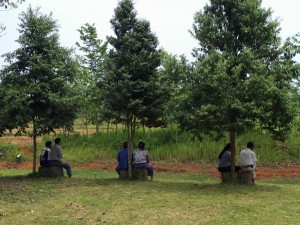Our lives and voices are important to understanding ‘what is peace’, and ‘how we build peace’.
…but our lives are not leading the policy decisions, and voices that are ignored lead to ongoing injustice and violence.
In every place where there is violence, there are people who know what to do and how to build peace. They build the creative places for listening, meeting and changing minds and hearts. They protect others, and create opportunities for dialogue and hope.
The hope that they keep alive, is a radical act of building peace, of not giving in to the darkness. Whilst nonviolence has been largely delegitimised by politics, in using it in communities, people demonstrate it’s power and the necessity of using it to generate change.
When we fail to include the voices of those who are marginalised and harmed, we lose the opportunity for the injustices to be resolved. This happens when the voices of women who have been raped are not included in the making of policy. The injustice they face can be ignored and inadequate steps framed as progress. This happens when we continue our belief that security equates to a strong military but ignores the daily struggles to house, feed and keep families warm.
The centralising of lives and voices humanises us. Nonviolence demands we see others as human and centralises our commonalities and shared experiences. This is directly in opposition to militarism which de-humanises people in order to persuade them to kill, threaten and believe that violence is a solution.
There is no place where the listening to voices and learning about lives will not make us more inspired, more interested in making things better and more hopeful about creating peace…peace in it’s broadest, more complex, beautiful and constantly changing way.

